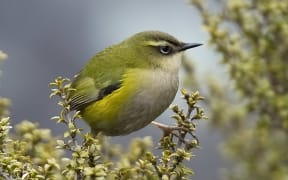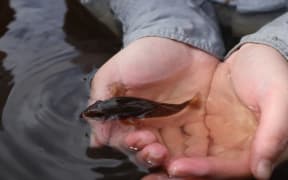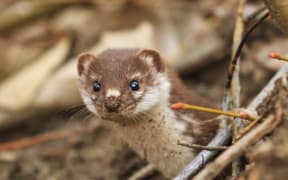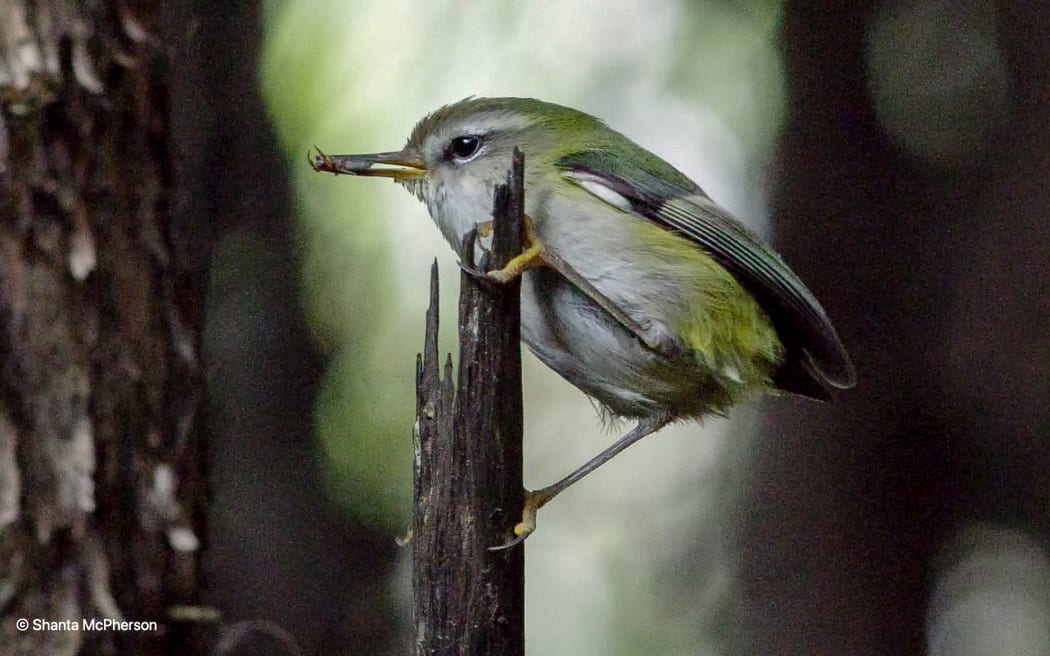
The titipounamu or rifleman is among success stories, moving from the category of high concern to low to moderate concern. Photo: © Shanta McPherson
A recent survey by Wellington City Council shows no native birds are seriously at risk in the capital anymore.
The survey takes place every year and monitors diversity, abundance and distribution trends to assess how local conservation efforts are impacting Wellington's bird numbers.
The titipounamu or rifleman is no longer considered to be of high concern or have a tiny population and is now in the moderate to low concern category.
In 2021, titipounamu were spotted in the wild in the city for the first time in over 100 years.
They have now also been found building nests outside of Zealandia's predator free fence.
Wellington Council's biosecurity specialist Henk Louw said these results represented decades of teamwork, predator control and the success of the Zealandia sanctuary.
Zealandia Te Māra a Tāne's general manager conservation and restoration Jo Ledington said Wellington was one of the only cities in the world where native biodiversity was increasing.
"It's so exciting to see species such as titipounamu establishing outside the fence," she said.
According to Wellington City Council, the average number of native bird species being counted each year since 2011 has risen by 41 percent.
Average annual counts of kākā have increased by 260 percent, kererū by 200 percent, tūī by 85 percent and pīwakawaka by 49 percent.
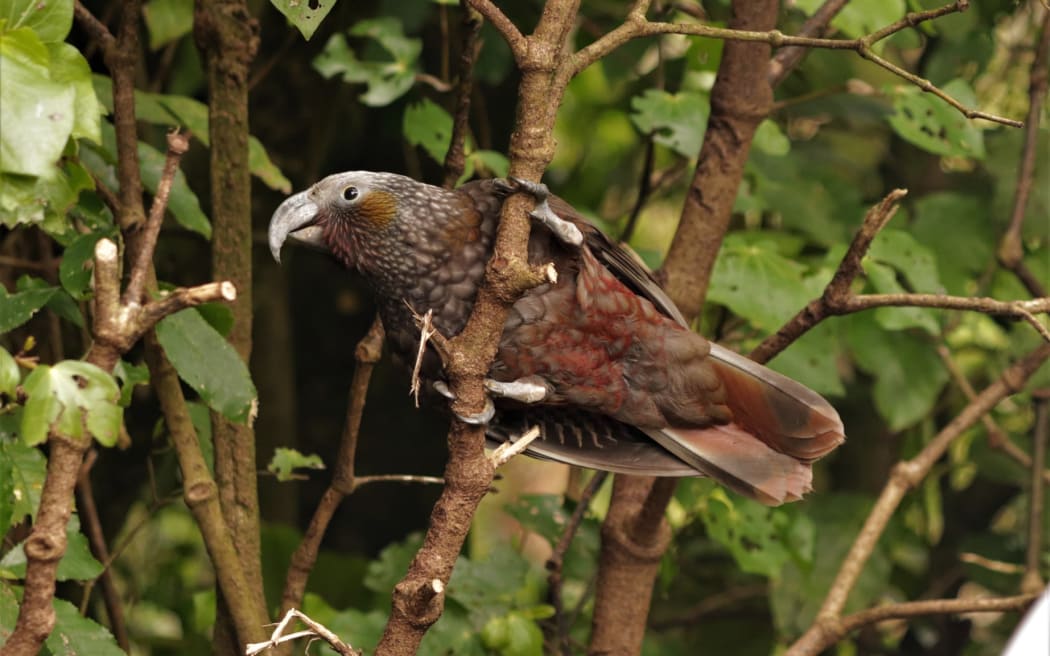
Kākā numbers are up by 260 percent. Photo:
The only dip in that time was the tauhou or silvereye which has declined by 9 percent, likely due to having a wider range of habitats that were not all closely monitored.
Ruru or morepork numbers were a mystery because they are nocturnal and harder to monitor, but the council has plans for volunteers to carry out night surveys next year.
The council also said native bird numbers were doing well regionally.
![Top, left to right: [https://www.aucklandmuseum.com/collections-research/collections/record/am_naturalsciences-object-122214?p=2&srt=score&k=heteralocha%20acutirostris&ordinal=11 Huia] by Auckland Museum Ref LB 9129 (CC BY 4.0); [https://collections.tepapa.govt.nz/object/532016 North Island Piopio], Turnagra tanagra, collected 8 September 1900, Waitotara district, New Zealand. [https://creativecommons.org/licenses/by/4.0/ CC BY 4.0]. Te Papa (OR.000212). Bottom, left to right: South Island snipe by Don Merton/Department of Conservation Ref 10040147; Laughing owl by Buthbert & Oliver Parr, 1909 at Raincliff Station, Opihi River, South Canterbury; Bush wren by Don Merton/Department of Conservation Ref 10037276.](https://media.rnztools.nz/rnz/image/upload/s--U2c0fNtG--/ar_16:10,c_fill,f_auto,g_auto,q_auto,w_288/v1690590667/4L54188_birds_jpg)
